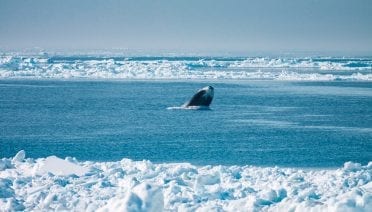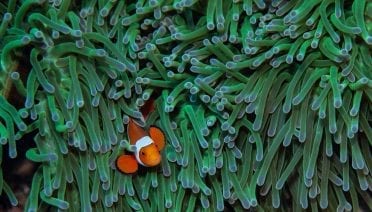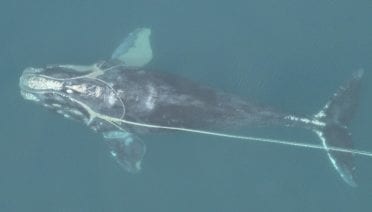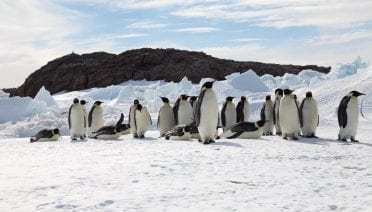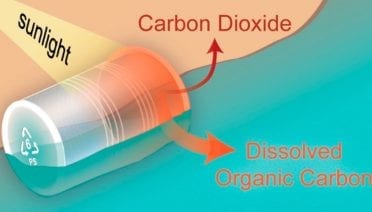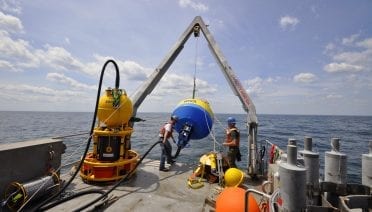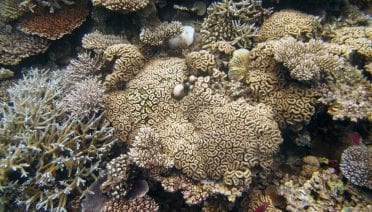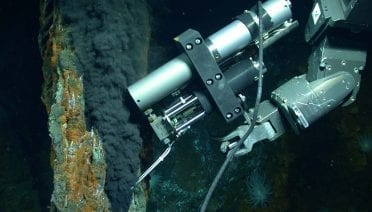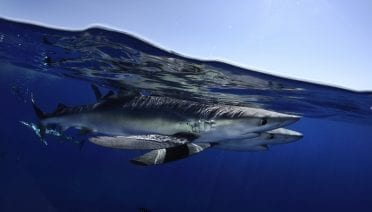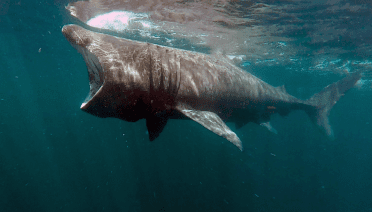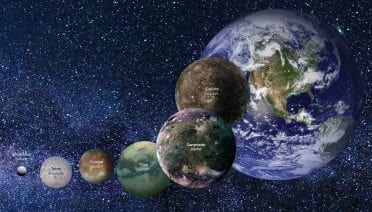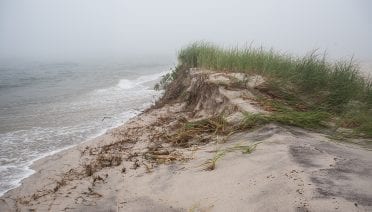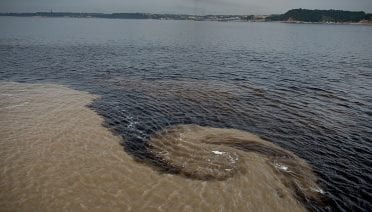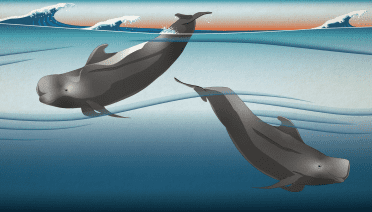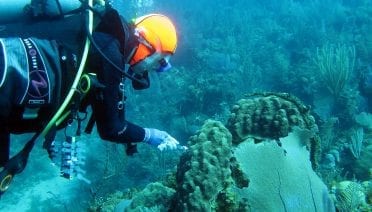Press Room
A study by researchers at Woods Hole Oceanographic Institution (WHOI) shows that the microbial communities inside whales may play an important role in the digestion of one of the ocean’s most abundant carbon-rich lipids, known as a wax ester.
Woods Hole Oceanographic Institution (WHOI) President and Director Mark Abbott plans to step down at the end of 2020.
The beloved anemone fish popularized by the movies “Finding Nemo” and “Finding Dory” don’t have the genetic capacity to adapt to rapid changes in their environment, according to a new study in the journal Ecology Letters.
The funding provided by the SeaWorld Conservation Fund will be primarily used to test alternative non-lethal fishing gear. Whales and sea turtles commonly entangle in ropes that connect crab or lobster traps on the sea floor to buoys on the sea surface.
Emperor penguins are some of the most striking and charismatic animals on Earth, but a new study from the Woods Hole Oceanographic Institution has found that a warming climate may render them extinct by the end of this century. The study, which was part of an international collaboration between scientists, published Nov. 7, 2019, in the journal Global Change Biology.
Woods Hole Oceanographic Institution is pleased to announce that Admiral John Richardson has joined the WHOI Board of Trustees.
The general consensus of governmental agencies is that it takes polystyrene thousands of years to fully break down. But a new study shows that it may instead degrade in decades or centuries when exposed to sunlight.
NOAA’s National Centers for Coastal Ocean Science recently announced funding for 12 new research projects to better understand and predict harmful algal blooms (HABs) and improve our collective response to them.
Researchers devised a way to accurately estimate the weight of free-living whales using only aerial images taken by drones.
A new study reveals that more of corals’ nutrients come from hunting than previously expected, information that may help predict the fate of coral reefs as global ocean temperatures rise.
Sea levels in many areas across the global ocean are rising. Since the turn of the 20th century, the seas have risen between six and eight inches globally.
New research provides evidence of the formation and abundance of abiotic methane—methane formed by chemical reactions that don’t involve organic matter—on Earth and shows how the gases could have a similar origin on other planets and moons, even those no longer home to liquid water.
Blue sharks use large, swirling ocean currents, known as eddies, to fast-track their way down to feed in the ocean twilight zone—a layer of the ocean between 200 and 1000 meters deep containing the largest fish biomass on Earth, according to new research by the Woods Hole Oceanographic Institution (WHOI) and the Applied Physics Lab at the University of Washington (UW).
An autonomous underwater vehicle (AUV) known as the REMUS SharkCam has been used in the UK for the first time to observe the behaviour of basking sharks in the Inner Hebrides, off the west coast of Scotland.
Agency funds five-year effort to understand the potential for life in outer solar system and establishes a new Network for Ocean Worlds The National Aeronautics and Space Administration (NASA) will invest in a major new research program headquartered at the…
A new study by the Woods Hole Oceanographic Institution (WHOI) clarifies what influence major currents in the North Atlantic have on sea level along the northeastern United States. The study, published June 13 in the journal Geophysical Research Letters, examined both the strength of the Atlantic Meridional Overturning Circulation (AMOC)—a conveyor belt of currents that move warmer waters north and cooler waters south in the Atlantic—and historical records of sea level in coastal New England.
A new study from researchers at the Woods Hole Oceanographic Institution (WHOI) and Harvard University may help settle a long-standing question—how small amounts of organic carbon become locked away in rock and sediments, preventing it from decomposing. Knowing exactly how…
Findings could represent new drug targets for human pathogens A new study led by researchers at Woods Hole Oceanographic Institution (WHOI) and Swansea University Medical School furthers our knowledge of viruses—in the sea and on land— and their potential to…
Short-finned pilot whales have long been recognized as a single species, but a recent study found that two unique subspecies actually exist.
WHOI scientists distinct discover microbes living just a few centimeters from the surface of corals near the southern coast of Cuba. The discovery may yield clues about the ecological functions of microbes, and how they find and infect coral colonies.

